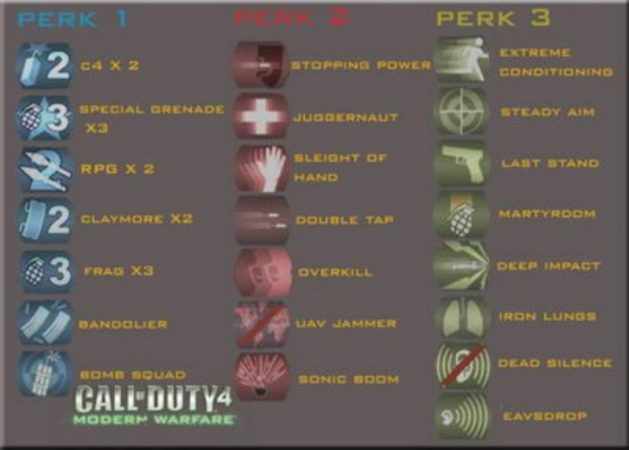There are some video games so popular that their presence transcends the gaming community. Their titles, developers, or characters become household names. This is especially the case with shooters: Halo, Call of Duty, and Battlefield. These games have become so ubiquitous, the series so frequently produced, that it’s almost hard to remember a time when they didn’t exist, especially for millennials. Yet I’d be surprised if the majority of gamers under eighteen had even heard of the Medal of Honor series, let alone played it, which is notable considering that Medal of Honor was the Big Bang of the military shooter genre. The story behind Medal of Honor’s impact and its drift into obscurity is not only dramatic but also offers insight into why modern blockbuster FPS series are struggling to retain players.
One of the most influential shooters of all time almost never even happened. The first Medal of Honor game was envisioned in late 1997 by Steven Spielberg, who was exploring the potential of “interactive entertainment”. Having entered the post-production phase of Saving Private Ryan, Spielberg wanted to share the drama and history of World War II to the younger generations, who were barred from the film due to its M-rating. Spielberg watched his son play GoldenEye and recognized the potential for video games as a medium for storytelling. Two years later, the game was almost done, but the project was almost scrapped because of one angry letter.

The meeting was between producers, Spielberg, and a man named Paul Bucha. A Vietnam vet, Bucha was awarded the Medal of Honor. He was also president of the Congressional Medal of Honor Society. After learning of the video game’s title, Bucha sent a strongly worded letter to Spielberg and his team. His case was simple: to base a video game on a sacred military honor was sacrilegious. Spielberg and the rest of his team were shaken. Despite having invested millions, Spielberg almost canceled the project, but a simple request from the game’s producer, Peter Hirschmann, saved the day. He asked Bucha to come down and see the game for himself. When Bucha personally witnessed the reverence and tact the team and their game had for their subject, he changed his mind and even went as far as to give the Society’s official endorsement.
Who knows how modern shooters would have developed had the game been canceled; as it was, the first Medal of Honor game was impressive in not only in its content but its execution. The PlayStation’s hardware was literally pushed to the limit. With a cap of a now-laughable two megabytes of memory, developers were forced to find clever solutions like setting every mission at night. The game’s AI was groundbreaking as well. Little details that contemporary gamers might miss or even take for granted – an enemy throwing a grenade back, or a helmet flying off after a headshot – were astonishing details at the time that created a level of intricacy previously unseen in FPS games.

After the game was released in November of 1999, it went on to become DreamWorks Interactive’s best-selling title, but unfortunately for Spielberg and DWI, Medal of Honor’s success would only come after it was sold to EA to cover DWI losses. Over the next two decades, EA would add over a dozen titles to the Medal of Honor series. Considering its gilded beginnings and long run times, it’s odd to think how rarely the series is mentioned, if at all. Nowadays it seems like a footnote in the legacies of titles like Call Of Duty and Battlefield. So what lead to the series’ downfall?
Medal Of Honor began to struggle when it left the familiar – if not cliché –

Warfighter was a flop in not just delivery, but in concept as well. It had its share of flaws, true – buggy gameplay, cringe-worthy characters, and an unoriginal story. Ironically, the game’s realism – one of the best features of the very first MoH title – created further negative press after seven members of the Navy SEALS Team 6 were reprimanded for sharing classified information with Warfighter’s developers. Yet even if the game was done well, it simply wasn’t necessary. Warfighter was competing against its very own publisher’s Battlefield 3, which was massively successful. Most fans saw Warfighter as effort and money that could ’ve better been spent on Battlefield. EA agreed, and EA COO Peter Moore announced that Medal of Honor would be taken out of rotation only three months after Warfighter’s release. It’s been six years since, and there’s been no mention of a further reboot since. But perhaps that’s exactly what the FPS genre needs.
A few days ago, I downloaded Call of Duty: Modern Warfare on Steam. Looking for a dose of sepia-tinged nostalgia in the single-player, I was surprised to see that the multiplayer was even functioning. Even more surprising was the number of servers available. I joined the most populated one and jumped into a Team Deathmatch on Crossfire. Several hours of play later I was both thrilled and confused – thrilled that a game over a decade old could still be so good – and bewildered as to why, with a decade’s worth of advancement in tech, much contemporary multiplayer FPS gameplay can’t stand up against games like Modern Warfare. I’m sure nostalgia had a lot to do with it. But after revisiting the game, it’s hard to shake the feeling that there’s something lacking – or maybe there’s too much of something – in today’s shooters.
My blast to the past with Call of Duty: Modern Warfare left me yearning for simplicity. Back then, the formula was simple – kill or be killed. Kill enough, you get streaks. There were perks and attachments for weapons to add some flavor and variety, but nothing was particularly game breaking. Even Call of Duty seems complex in comparison to Counter-Strike, which is still a top-dog in the FPS genre despite being almost twenty years old. In today’s wake of battle royales and MOBAs, the minutes leading up to a shootout have become almost just as important if not more so than the gunplay itself. Characters with different abilities, guns, and attachments randomly

To loosely quote the gaming podcast Giant Bombcast, the best game doesn’t have a story; it creates one. Games like Battlefield 3 or Insurgency gave me such moments through their straightforward multiplayer gameplay. I didn’t have to spend time in training familiarizing myself with a certain character’s abilities. I didn’t have to study maps to learn where I was most likely to get spawn-peeked from, or where the best loot was. I could just jump in, shoot bad guys, and have a hell of a time. We’re in a time where such FPS gameplay seems to be so obvious that it’s overcomplicated. I think it could be just the right window for Medal of Honor to consider a comeback, especially now that it’s overachiever sibling, Battlefield 5, did so poorly in its recent foray towards the bombastic. What was one of Warfighter’s apparent weaknesses – it’s stringent adherence to realism – might be a selling point, considering the cartoony, zany direction multiplayer shooters have taken. A simplistic shooter with smooth gunplay and good-looking, realistic graphics sounds nice, doesn’t it?
What do you all think? Do you like direction FPS games are headed, would you like to see some tweaks, or do you prefer the days of yore? I’d love to hear your thoughts.


